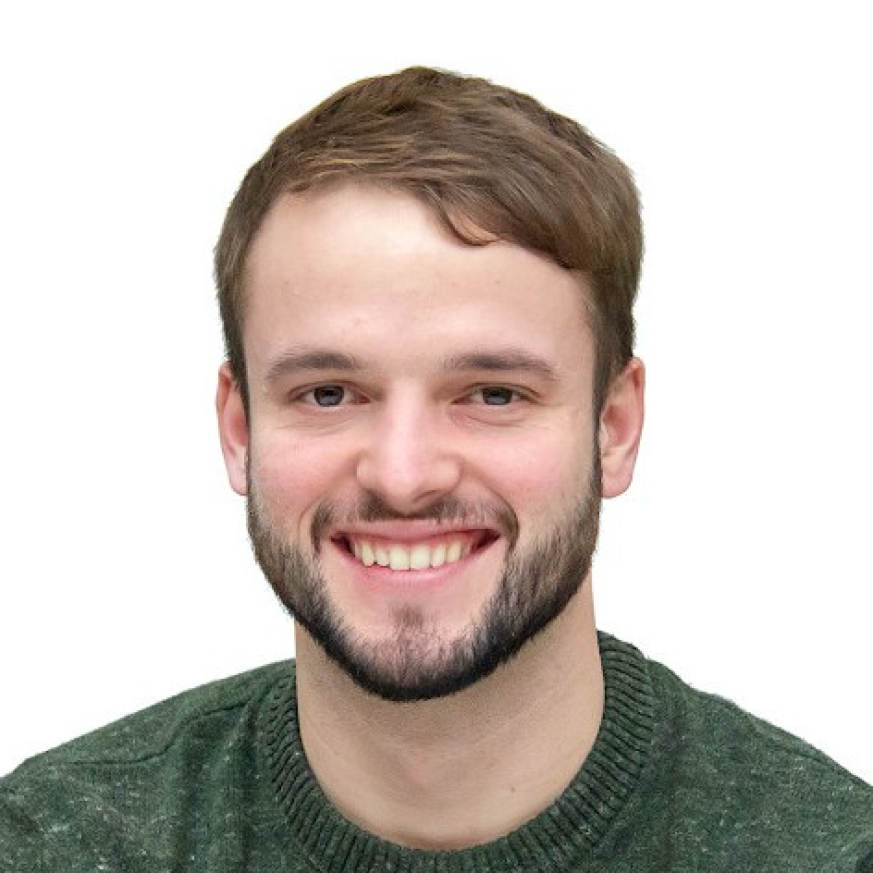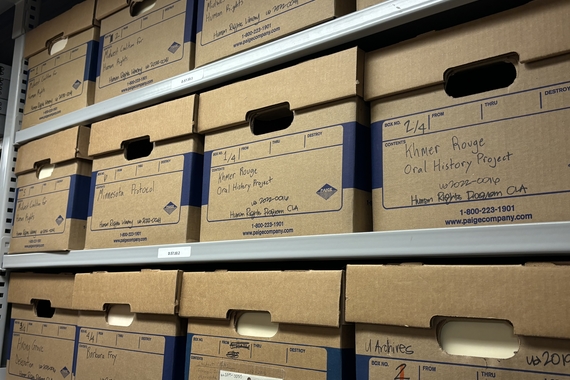MHR Student Assists in the Advancement of Unarmed Civilian Protection
Christopher Grathwol (MHR '21) is a second-year Master of Human Rights Student with a concentration in conflict and international security with a regional studies focus on the Middle East and North Africa (MENA) region. Over the summer, Christopher worked with Nonviolent Peaceforce assisting with multiple projects focused on unarmed civilian protection. To learn more about Christopher's experience, read our interview below!
Human Rights Program (HRP): Please describe your summer internship. or project and the work that you did during this time.
Christopher Grathwol (CG): Nonviolent Peaceforce is an NGO whose stated goal is to "transform the world's response to conflict". Specifically, they work to promote the practice of Unarmed Civilian Protection (UCP), which is the practice of having unarmed civilians protecting other civilians in situations of violent conflict. It is unique, being that it is rooted in nonviolence and the primacy of local actors.
HRP: What kind of work did you do with this organization?
CG: The first is a qualitative research project being led by my MHR colleague Paige McLain, in coordination between Nonviolent Peaceforce and the Human Rights Lab at the U of M. Paige's project seeks to build on the existing knowledge surrounding UCP by conducting qualitative research with UCP practitioners in order to create a deeper understanding of best practices, their definitions, strengths, and challenges. I've been responsible for interviewing Spanish-speaking UCP practitioners based in Latin America and transcribing and translating these interviews. The project will culminate in the creation of a Good Practices Report. I have also been working on the revision of Nonviolent Peaceforce's UCP training manuals which are used to train teams around the world on the basics of UCP. I've been working closely with a prominent UCP scholar, Ellen Furnari, and with Huibert Oldenhuis, an Nonviolent Peaceforce team member based out of The Netherlands.
HRP: What made you choose this internship specifically? How does the work you were doing this summer relate to your area of study at UMN?
CG: I've long been interested in the security aspect of humanitarian and human rights work and think that Unarmed Civilian Protection offers a valuable paradigm shift from that which traditionally surrounds discourse around human security. As one of the leading organizations practicing and promoting UCP, Nonviolent Peaceforce has always been of interest to me- it's been a privilege to work with and learn from them. I intend to bring what I've learned this summer into my research this coming year as I continue to study human rights, conflict, and security in the context of the MENA region.
HRP: What are some of your key takeaways from this experience?
CG: Through this experience, I've not only learned a tremendous amount about UCP specifically but about security in human rights more broadly as well. One of the concepts UCP stresses is that, for solutions to be sustainable, they must be rooted in local communities. While I intend to focus specifically on the security aspect of human rights and humanitarian work, I believe this concept can be applied to any human rights work. I can say that everything I've learned from this work has reinforced the importance of conceiving of human rights as a holistic and interconnected concept, rather than as an a-la-carte menu of privileges to be selectively prioritized.
HRP: What skills or personal growth have you gained through doing this work?
CG: In addition to deepening my understanding of Unarmed Civilian Protection, I've had the opportunity to engage in work to which I had not been previously exposed. For example, that which I did with Paige's project represents my first experience conducting qualitative research. This has also been my first professional exposure to the internal operations of an NGO with a sizable budget and international reach. I've also had my first professional opportunity to leverage my Spanish language abilities in work that I conducted with Latin American UCP practitioners, whose viewpoints and experiences were incredibly interesting and valuable. As someone incorporating the study of Arabic into their academic focus, it was empowering to be able to put my language skills to use professionally.
HRP: How has this experience challenged you? Was your work impacted by COVID-19?
CG: Between taking summer classes and working on two internship projects, this summer has definitely been the busiest of my life! It was certainly a challenge for me to balance it all, but I was so engaged in the work that it was a hugely positive experience, despite the challenges. I'm very fortunate and grateful that COVID didn't pose many challenges for my personal life or work specifically. That being said, it was sobering to learn about the challenges faced by human rights and humanitarian workers who were already doing incredibly difficult work prior to the onset of the pandemic. Everyone has done their best to adapt, which is inspiring in its own right.
HRP: How will this experience help or inform your career path or professional interests?
CG: This experience has helped me refine my academic and professional focus as I enter my second year in the MHR program. Connecting with and learning from professionals is invaluable in the development of a deeper understanding of the career paths within this field and, through this opportunity, I've developed a number of contacts with which I'm looking forward to connecting in the coming years.



